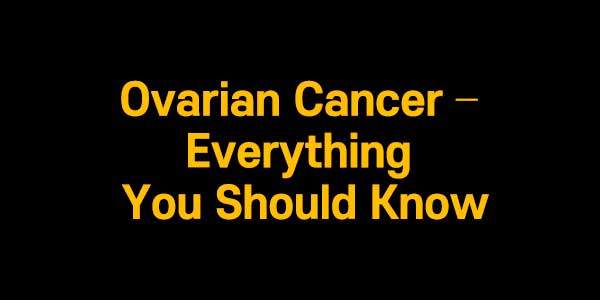
Ever felt persistent bloating or unexplained fatigue and brushed it off as just stress or aging? 😟 What if your body was signaling something deeper?
Hi friends 🌸 I’m so glad you landed here today — this topic is super important. Recently, someone close to me was diagnosed with ovarian cancer, and I realized how little most of us really know about it. So I did the research, cried a bit, asked a million questions to doctors, and now I'm sharing it all with you. From symptoms to treatments, food tips to FAQs — if you or someone you love is dealing with this, I hope this post brings light, clarity, and a touch of comfort. 🫶 Let's dive in together, one step at a time. You’re not alone 💛
📋 Table of Contents
What Is Ovarian Cancer? 🤔
Ovarian cancer is a type of cancer that begins in the ovaries — the small, almond-shaped organs that produce eggs and hormones in people with female reproductive systems. It’s often referred to as a "silent killer" because it usually doesn’t show noticeable symptoms until it has already spread to the pelvis or abdomen. That’s why early detection is rare but SO crucial. There are different types, like epithelial tumors (most common), germ cell tumors, and stromal tumors — each behaving a bit differently. Understanding what you're dealing with is the first step in fighting back ❤️
Causes and Risk Factors ⚠️
| Risk Factor | Explanation |
|---|---|
| Age | Most common in women over 50, especially after menopause. |
| Family History | Having close relatives with ovarian, breast, or colorectal cancer increases risk. |
| Genetic Mutations | BRCA1 and BRCA2 mutations can drastically increase your chances. |
| Reproductive History | Never being pregnant, early menstruation, or late menopause can be factors. |
| Hormone Therapy | Long-term use of estrogen-only hormone therapy may raise risk. |
Symptoms and Stages 📈
Many symptoms mimic common issues like bloating or fatigue, so they’re easy to ignore. BUT if they persist for more than 2-3 weeks — it's time to talk to a doctor.
| Common Symptoms | What They Feel Like |
|---|---|
| Persistent bloating | Not the “I ate too much” kind — this lingers for days or weeks. |
| Pelvic or abdominal pain | Sharp or dull aches that don’t go away. |
| Urinary urgency | Feeling like you have to pee all the time, even if you just went. |
| Changes in appetite | Full quickly, even with small meals. |
| Fatigue | Not just tired — we're talking can’t-get-out-of-bed tired. |
Ovarian cancer is classified into 4 stages — from being limited to the ovaries (Stage 1) to spreading throughout the body (Stage 4). Catching it early could literally save your life.
Treatment Options 💉
Treatment for ovarian cancer often includes a combo of surgery and chemotherapy. In some cases, targeted therapy or hormone therapy may also be used. Here are the most common options:
- 🟡 Surgery: Removal of one or both ovaries, fallopian tubes, uterus, or affected tissues
- 🟡 Chemotherapy: Usually follows surgery to kill remaining cancer cells
- 🟡 Targeted Therapy: Drugs that attack specific cancer-related molecules
- 🟡 Hormone Therapy: Blocks hormones that fuel some types of ovarian cancer
- 🟡 Radiation: Rarely used but possible in special cases
Recommended Diet & Prevention Tips 🥦
Eating a healthy, antioxidant-rich diet can make a BIG difference 🌿 Here’s what to eat (and what to avoid):
| Eat More Of 🍎 | Limit or Avoid ❌ |
|---|---|
| Berries, leafy greens, tomatoes | Processed meats, sugary drinks |
| Whole grains, beans, tofu | Fried or high-fat foods |
| Green tea, turmeric, flaxseed | Alcohol, artificial additives |
Also — regular exercise, managing your weight, avoiding tobacco, and genetic screening (especially if you have family history) can help reduce your risk 🧘♀️
FAQ – You Asked, We Answered ❓
What are the first warning signs of ovarian cancer?
Persistent bloating, pelvic pain, and frequent urination that won’t go away are common early indicators.
Can I survive ovarian cancer?
Yes, especially if caught early! Stage 1 has over 90% 5-year survival rate. Early detection saves lives.
Is ovarian cancer genetic?
In some cases, yes. BRCA1/BRCA2 gene mutations increase the risk significantly.
Can birth control lower my risk?
Surprisingly, yes! Long-term use of birth control pills may lower the risk by up to 50%.
How often should I get checked?
If you have risk factors, annual pelvic exams and discussing family history with your doctor is a must.
Is there a test to catch it early?
Unfortunately, no universal screening exists — but transvaginal ultrasound & CA-125 tests help when symptoms show up.
Thanks so much for sticking around through this detailed guide 💛 I know this isn’t the easiest topic, but knowledge truly is power. Whether you’re going through this journey yourself, supporting a loved one, or just staying informed — I see you. And I’m cheering you on 🫶 If this helped you even a little, leave a comment below or share this post with someone who might need it 💌 Let’s build a community of hope, healing, and strength — together.
ovarian cancer, women's health, cancer symptoms, cancer treatment, healthy lifestyle, cancer diet, cancer prevention, chemotherapy, BRCA genes, gynecologic oncology